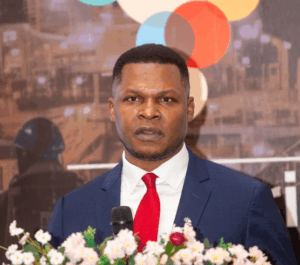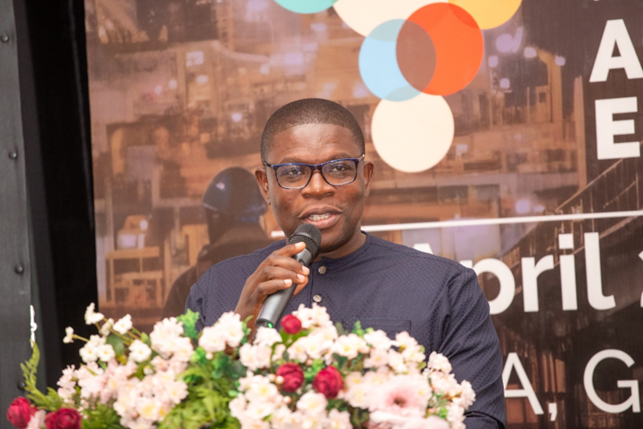By Ebenezer Chike Adjei NJOKU
Plans are underway to construct three oil refineries, five hydrochemical plants and ten tank farms as part of a comprehensive strategy to expand the country’s energy infrastructure and maximise the value of its hydrocarbon resources.
Addressing energy investors and industry leaders at the 2025 Invest in African Energies: Accra Investor Briefing, Deputy Energy and Green Transition Minister, Richard Gyan-Mensah, outlined a series of government’s infrastructure ambitions and policy direction.
Speaking on behalf of the Minister for Energy, John Jinapor, he stated that the planned facilities will significantly strengthen Ghana’s capacity to process and utilise its petroleum resources domestically, adding that the ultimate goal of the initiatives is energy security through affordable prices by prioritising storage, transportation infrastructure and other measures to maximise value.
“A 20,000-acre piece of land has already been secured in Jomoro in the Western Region for the construction of these facilities,” he said.
“The government is committed to providing basic infrastructure such as roads, water and electricity in the area to accelerate the development,” he added.
Each of the three new refineries will have a minimum processing capacity of 300,000 barrels of oil per stream day, a major scale-up from Ghana’s current refining capacity, the deputy minister said.
The in-country refineries have been bedevilled with a string of issues. The state-owned Tema Oil Refinery (TOR), which has a capacity of 45,000 barrels per stream day (bpsd), has faced several operational and financial challenges, including but not limited to maintenance issues, inefficiencies and financial mismanagement. The Sentuo Refinery, with a similar capacity, has also had its fair share of challenges.
Nonetheless, he said the plants are expected to complement ongoing upstream exploration and development projects and support the country’s objective of becoming a regional energy hub.
To ensure seamless execution, the Petroleum Hub Development Corporation has been established to coordinate with regulatory bodies and expedite permitting for investors, he noted.
“Those in the free zones area will be entitled to import duty waivers,” the minister stated , saying it was evidence of the government’s intent to create a competitive and investor-friendly environment.
The petroleum hub, commissioned under the last administratration, has itself not been without controversy. Recently, chiefs in the area raised concerns over more than GH¢1.2billion in compensation to landowners. The government has, however, offered assurances that the payments would be made.
Mr. Gyan-Mensah explained that the development forms part of a broader initiative to integrate infrastructure investment with local content development and industrialisation. The government also plans to expand gas processing capacity to meet rising demand from various industrial sectors, including power generation, cement, fertiliser, alumina and methanol production.
“A firm decision has been made for the construction of another 150 million standard cubic feet per day (mscfd) gas processing plant, in anticipation of additional volumes of gas from the country’s producing fields and sedimentary basin,” Mr. Gyan-Mensah said.
According to the ministry, the planned energy infrastructure will play a central role in Ghana’s efforts to increase domestic value addition, reduce dependence on imported refined products, and create employment opportunities. The projects are also designed to attract capital and technology transfer from international investors through strategic partnerships.
The comments come at a time when Ghana is actively reforming its regulatory and contractual frameworks to streamline investment processes. Policy amendments now allow petroleum contractors to explore additional prospects under existing agreements, thereby removing the requirement for new contract negotiations. This move is intended to accelerate upstream activity and maximise recoverable resources.
“These provisions allow the contractor to develop bypass prospects and prospects that are initially deemed not prospective enough, to enable them to reap the full benefit of the resources in their contract area,” Mr. Gyan-Mensah explained.
These come against the backdrop of a broader conversation about the role of hydrocarbons in the future of energy, especially in Africa.
The continent possesses more than 125 billion barrels of proven crude reserves and 620 trillion cubic feet of natural gas reserves, yet faces significant challenges with protracted project approvals, construction setbacks and bureaucratic hurdles—issues largely attributable to financing constraints.
While acknowledging the need to diversify energy sources, the deputy minister reaffirmed the central role of oil and gas in Ghana’s medium-term development strategy.
Ghana currently possesses significant untapped hydrocarbon potential, with several offshore and onshore blocks available for licensing. Existing partners in some blocks have already met their work obligations and de-risked operations, making them attractive for new entrants.

Echoing these sentiments, Executive Chairman of the African Energy Chamber, NJ Ayuk, stressed the importance of Africa leveraging its natural resources for development.
“Others have used their fossil fuels to develop their countries. We are going to use every drop of hydrocarbons to improve the lives of our people,” he said, adding that Africa’s energy resources must serve as a catalyst for inclusive growth and industrialisation.
Turning specifically to Ghana, Ayuk was bullish about the country’s prospects. “Ghana is back, ready for investment and energy. No nation is more prepared for projects in the coming years,” he said.
Similarly, the deputy minister amplified the government’s confidence in the country’s energy potential, stating: “To the investors here and beyond, Ghana is open for business”.
The minister urged private sector actors to work with the government to develop the required infrastructure and unlock the full potential of Ghana’s energy resources, calling it a “mutual benefit” for investors and the country.










